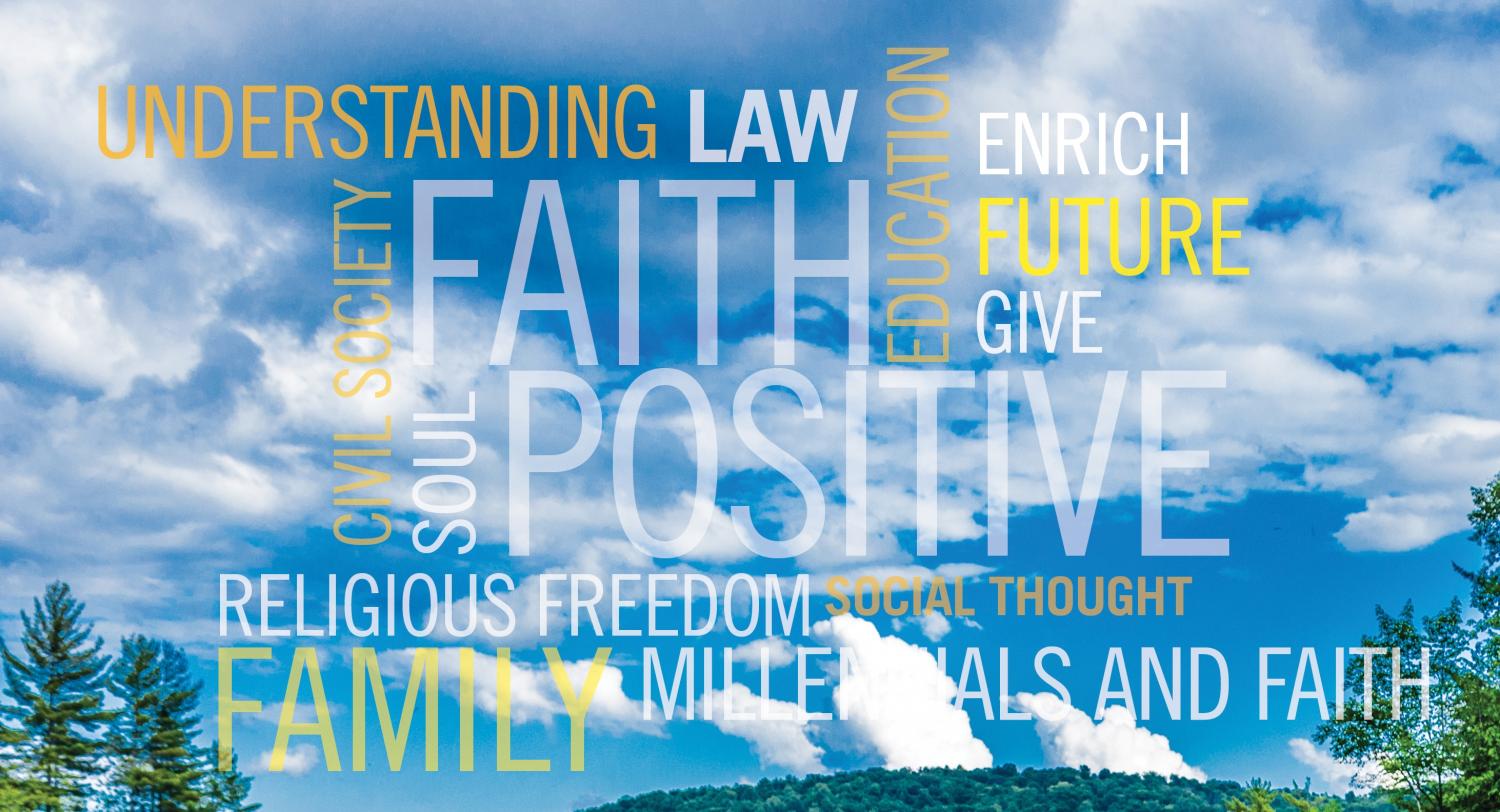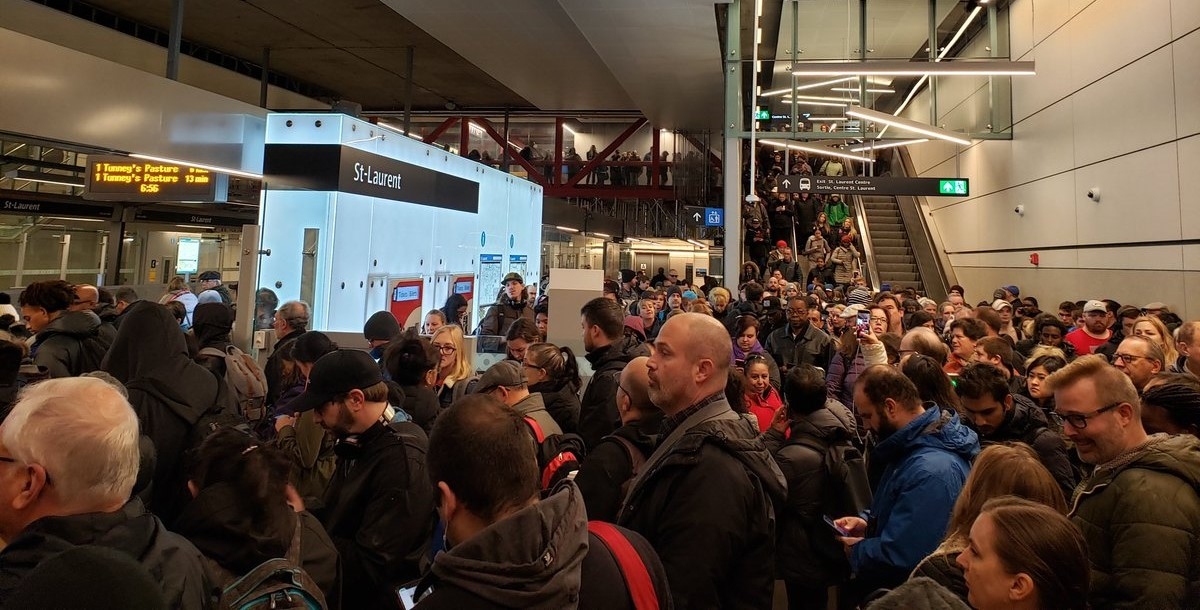
This is Canada. Faith matters.
For centuries, faith has shaped the human landscape of Canada. From literature and art to social infrastructure and social research, faith has and will touch almost every surface of this country’s past, present and future.
What if faith was forgotten?
What if we could no longer remember the importance of faith in how we live our lives, how we see our neighbours, or how we fulfill our social responsibilities?
These are the questions Michael Van Pelt, President and CEO of Cardus, asked himself two years prior to Canada’s 150th anniversary.
Cardus is Canada’s largest Christian think-tank dedicated to the renewal of North American social architecture.
As a privately funded group, it parlays independent and original research into various aspects of social life including law, education, social cities, work and economics and family and health.
For more than 40 years Cardus has served as a leader in both research and education while challenging public debate and producing publications.
As a state, Canada claims to be officially neutral, supporting neither religion nor irreligion.
As a society however, we are by no means secular.
Van Pelt explains recent polling by Angus Reid shows that faith is more central to Canadians’ lives than many realize.
Not only that, but “faith is central to improving the way people live and give of themselves,” says Van Pelt.
No matter what the polling shows, the importance of faith in Canada was at risk of being washed away by an overwhelming sea of secularism.
Official secularism of the state does not acknowledge the ways in which our values are informed by faith. In turn, society becomes desensitized to the positive role that multiple faiths play in Canada.
In order to fill the gap in our cultural amnesia, Cardus felt an obligation to implement a project that would remind us of how close faith is to our country’s core.
That project is called Faith in Canada 150.

Greg Pennoyer, program director, said: “We knew that stories of people, places, events and experiences would be told and celebrated. We had a sense that the important role of religion and of people of faith would be forgotten in this storytelling.”
Van Pelt regards Cardus’ role in leading the project as a requirement not a request.
No other Canadian think-tank, or organizations applying the same line of thinking, have engaged in a project with the breadth and depth of Faith in Canada 150.
Pennoyer has seen the project evolve from a single idea to a set of initiatives. He said: “It is an initiative with many projects and a vast community of religious leaders from all faiths working together to tell the story of, and celebrate, the place of religion in our life together.”
The two foundational initiatives of Faith in Canada 150 are the Faith Alliance Network and the Cabinet of Canadians.
Both these initiatives represent networks of the most senior leaders of faith communities with backgrounds in industry, political, religion, academia and culture.
Pennoyer compares another one of the project’s initiatives, Thread of 1,000 Stories, to a tapestry.
A tapestry is not made up of a few threads, nor is Canada composed of a few faiths.
Thread of 1,000 Stories, illustrates this by producing a large collection of stories where ordinary Canadians are encouraged to link between faith and acts in their everyday lives.
Van Pelt sais: “Through Faith in Canada 150 we are documenting hundreds of stories of faithful Canadians – from a wide variety of religious backgrounds – which we make public so that those moments of history are not lost.”
These stories explore the types of celebrations that take place in one’s faith community, the kinds of philanthropic work they engage in and the meaning associated with practising faith in Canada.
“Whether you’re talking about the work of Northrop Frye, a Jewish synagogue hosting an Iftar dinner for its Muslim friends, or a Baha’I contribution to the Truth and Reconciliation Commission, that’s all faith in action in Canada,” Pennoyer said.
Millions of Canadians exhibit faith in everyday acts. Faith in Canada 150 is the thread that will stitch all of these stories together producing the narrative that faith is vital to Canada. While these stories highlight the importance of faith in our past and present, the Millennial Network and #Give150 display the project’s commitment to faith in the future.

Faith in Canada 150 is working to establish a national network of next-generation leaders from all sorts of faith communities.
The Millennial Network initiative hosts a series of regional gatherings where next-generation leaders exchange ideas about faith in everyday life and receive guidance from members of the Cabinet of Canadians.
Between June 28-30, Faith in Canada 150’s Millennial Summit brought together 75 Canadians here in Ottawa.
When describing the event, Pennoyer said: “Delegates formed friendships across different faiths, and they gained confidence to be true to themselves and their faiths in public.”
Knowing that higher levels of religious belief are closely connected to higher levels of charitable giving, Faith in Canada 150’s #Give150 initiative aims to reverse the decline of giving Canada has experienced in recent years.
“By matching charitable donations — up to $150 recurring donations — we can help make giving a habit, not a reflex,” said Pennoyer.
Faith in Canada 150 has made its mission to fulfill the following five commitments.
Through initiatives like Thread of 1,000 Stories, Faith in Canada 150 has promised to celebrate the role of faith in the formation of Canada’s rich and diverse culture.
The project will serve to remind Canadians of the contributions religion has made to our common life.
It will tell stories from our country’s past that resonate through our present and towards our future.
The fourth commitment — whereby there is a commitment to encourage and inspire communities of faith to greater participation of Canadian life is what guides initiatives like the Faith Alliance Network.
Finally, Faith in Canada 150 vows to help build a network of leaders across private, public, religious and secular institutions who recognize and seek to nurture the place of faith.
The project was not only a way to remind us of the importance of faith, but also a way to commemorate Canada’s 150th birthday. Celebrations around the nation were aimed at memorializing the nature of our country, all with a strong influence in affecting how we see ourselves.
Van Pelt added: “Words change worlds. And if our words ignore the contribution of religious faith to Canada, we would write a troublesome story by marginalizing Canadians of faith, telling them they don’t matter.”
Faith in Canada 150 ensures that faith is a part of the conversation during the 2017 celebrations, as well as affirming its central role in Canada’s story.
Faith will not be forgotten.
Not on our 150th anniversary. Not ever.









